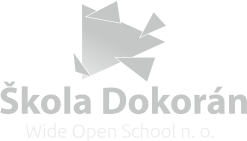ECEC Play Hubs
Hračkárnice
About the project
The overall goal was to combat the segregation of young Romani children and families and to promote social cohesion through community-based, inclusive Early Childhood Education and Care (ECEC) services. The project promoted the active involvement of Romani and non-Romani communities in ECEC services through the development of ECEC Play Hubs, which are a successful approach to overcoming segregation and providing access to quality non-formal ECEC services. These services have also improved the transition experience to formal education and built the capacity of parents.
Objectives:
- To improve the responsiveness and accountability of local authorities, particularly elected and senior civil servants, towards marginalised Roma communities;
- To build the capacity of local authorities and Roma community representatives to develop and implement policies and public services that are inclusive of all, including Roma;
- To strengthen Roma families in Roma communities by supporting Roma parents (both mothers and fathers) in their efforts to raise their children in a safe, secure and caring family environment;
- To provide parents with information, social skills and knowledge about early childhood development, the importance of their role, information regarding alternative, effective parenting techniques, to promote better communication and understanding between parents and their children, to complement their children's discovery and learning experiences, and to ptomote positive parental attitudes towards education;
- To increase the level of enrollment of Roma children in kindergartens;
- To clarify to Roma parents the importance of the early childhood education and care in pre-school facilities;
- To increase mutual tolerance between Roma and non-Roma parents;
- To increase the range of educational materials for children, especially those from marginalized Roma communities;
- To improve and build the trust between all the involved stakeholders;
- To eliminate the inadequate parenting of Roma children from socially disadvantaged environment;
- To teach Roma children/all children how to meaningfully spend their leisure time;
- To help Roma parents prepare their children for school;
- To teach Roma children how to learn;
- To improve the socialisation skills of Roma children;
- To improve the educational results, behaviour and school attendance of Roma children.
Activities:
- Stakeholder mapping, local needs and challenges analysis - mapping of relevant actors at the local level + conducting a local needs and challenges analysis with a focus on young children, especially those who are "harder to reach".
- Formation of Local Action Teams (LATs) - organising the selection process for 6 Local Action Teams
- Training design - development of the ECEC Play Hubs toolkit
- Training of Trainers - conducting training of trainers
- Training of practitioners at local level - conducting capacity building trainings for LATs, educators and volunteers working with Romani children and their parents.
- Establishment of 4 ECEC Play Hubs - to furnish 4 ECEC Play Hubs with furniture, learning materials, sports equipment, games, toys and books according to the needs of the age groups involved.
- Implementation of community-based non-formal education activities - toy and book lending to families, Parenting with confidence workshops, Learning through play workshops, health education, joint intergenerational learning/ teaching/ training activities.
- Home visiting programme - a way of supporting parents to ensure the development of their children
- Initial and final IDELA assessment - the International Development and Early Learning Assessment.


